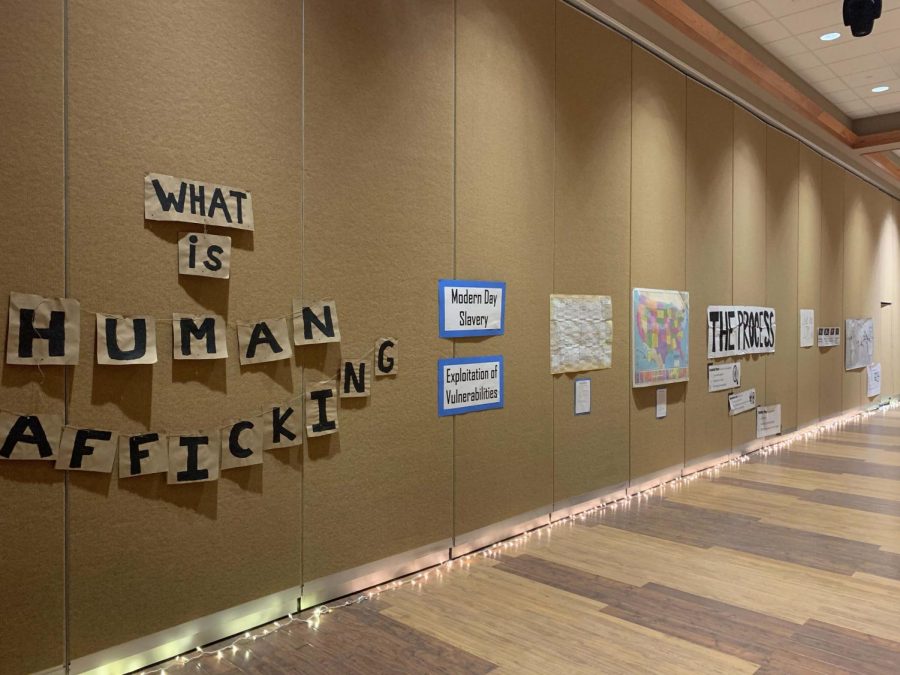IJM holds advocacy and education event
The UNI International Justice held their annual advocacy and education event on Wednesday, March 4 in the Maucker Union Ballroom.
Mar 12, 2020
On Wednesday, March 4, UNI’s International Justice Mission (IJM) presented their annual advocacy and education event. IJM is an international organization with chapters on hundreds of college campuses, as well as many offices around the world, committed to fighting against human trafficking.
Each year, UNI’s chapter of IJM puts on a presentation to raise awareness and take action. This year’s event, called “Baited,” focused on labor trafficking in the Thai fishing industry, where workers are compensated with very low wages for extremely long work days.
Attendees were led through three stations in the Maucker Union Ballrom. The first focused on information about human trafficking. The second station showed a short documentary called “Esther,” which centered around a victim of human trafficking, and the third station gave attendees the opportunity to send an email to Congress.
“It’s head, heart and hands,” explained junior English and computer science major Autumn Lauen, who serves as the vice president of IJM. “First you educate yourself, then you watch a documentary that makes you feel empathetic towards victims and motivated to act and then the next station is where you take action by sending an email to Congress.”
The email attendees could send to Congress was a pre-written message requesting the allocation of funds to help end human trafficking.
“We are asking them to allocate 25 million dollars to help end human trafficking in the next budget year,” said senior communication disorders Raelynn Meade, IJM president.
Attendees were also encouraged to reflect on their time at the event by writing down their plan of action to help fight against human trafficking.
Senior political science and public administration major Micah McCutchan, said the event left her feeling motivated.
“The most impactful thing about something like this is that it makes you feel hopeful,” she said. “I think a lot of times we think about human trafficking, which is such a large issue, as something that we’ll never be able to solve. […] But something like this makes me think that it’s an issue that we can do something about and that it is a solvable problem if we put the work in.”








